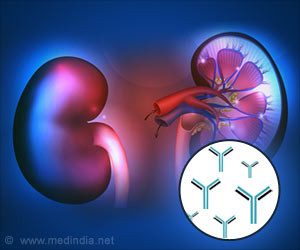Learn about the early detection of inflammatory bowel disease in children and the blood biomarkers involved.

‘Children diagnosed with #Inflammatory_bowel_disease before the age of six exhibit #biomarkers associated with the disease from #birth. #medindia’





Early Signs of Inflammatory Bowel Syndrome in Children
While many people are diagnosed in early adulthood, a smaller proportion is identified in childhood, especially if they exhibit symptoms such as weight loss, abdominal pain, diarrhea, and bleeding.Researchers at Aalborg University’s Center for Molecular Prediction of Inflammatory Bowel Disease (PREDICT) have discovered evidence that children diagnosed with IBD before the age of six exhibit biological characteristics linked to the illness from birth (1✔ ✔Trusted Source
Inflammatory Markers at Birth and Risk of Early-Onset Inflammatory Bowel Disease
Go to source).
According to recent research, certain inflammatory markers can be found in blood samples up to ten years before a formal diagnosis. This implies that the illness manifests considerably earlier than previously assumed.
Biological samples obtained prior to a diagnosis are frequently unavailable to researchers, therefore, the 10-year span represents the extent of the available data.
Early Blood Biomarker for IBD in Children
PhD student Jonas Julius Rudbæk from PREDICT explains:Advertisement
However, Rudbæk emphasizes that this research is still in its early stages: "This is the first time such a connection has been demonstrated globally, and it’s an incredibly important step. Now, the field needs to further explore the details of what we’ve uncovered."
"We only see these early signs of IBD in very young children, while those diagnosed later in childhood don’t show such changes at birth. This supports the idea that we are dealing with a specific group of children who are particularly severely affected, making it crucial to investigate preventive options for this subgroup," says Jonas Rudbæk.
Professor Dr.Tine Jess, director of PREDICT, adds: "Our study is a unique example of how Denmark’s health data and biobank resources can provide crucial insights into the origins of diseases. In the future, the knowledge we can gain from this resource will help prevent many chronic conditions, including inflammatory bowel diseases, not only in Denmark but worldwide."
Reference:
- Inflammatory Markers at Birth and Risk of Early-Onset Inflammatory Bowel Disease - (https:www.gastrojournal.org/article/S0016-5085(24)05210-7/fulltext)
Source-Eurekalert












